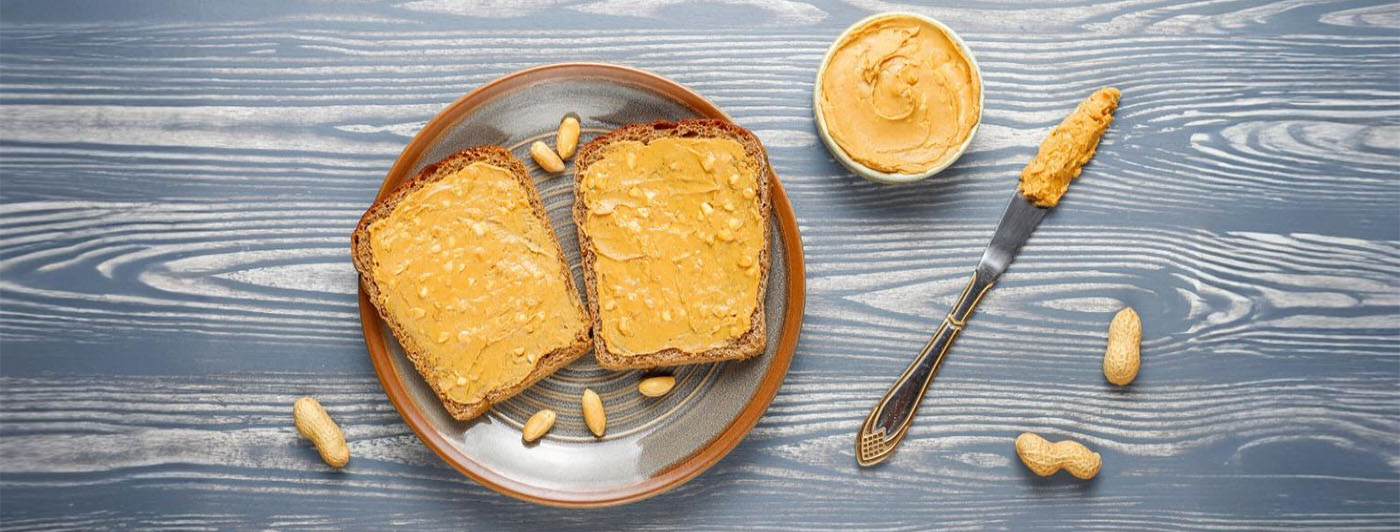Can one spoonful a day really transform your fitness journey?
If you’re looking for a delicious, convenient, and efficient way to fuel your muscle growth, incorporating 1 spoon of peanut butter protein into your daily nutrition might just be the game-changer you need. This simple scoop delivers a powerful combination of macronutrients—especially high-quality plant protein—that support strength, recovery, and overall health.
In this guide, we’ll break down the science behind peanut butter protein, its role in muscle development, and how you can strategically use 1 spoon of this plant-based powerhouse every day to build lean muscle mass—especially if you're following a plant-forward diet.
Why 1 Spoon Peanut Butter Protein Works for Muscle Gain
Protein is essential for muscle protein synthesis—the biological process by which your body builds and repairs muscle tissue after workouts. 1 spoon peanut butter protein provides a concentrated source of plant-based proteins, healthy fats, and a small amount of carbohydrates that support sustained energy. With approximately 8 to 10 grams of protein in a serving (depending on the brand and formulation), this small but mighty portion is ideal for anyone who wants to build muscle without resorting to highly processed or synthetic supplements.
For people who prefer vegan protein sources or are transitioning to plant-forward diets, peanut butter protein fits perfectly, offering a tasty, allergen-conscious, and nutritionally dense solution. This is particularly useful when combined with whole foods that enhance amino acid availability. Since plant-based diets can sometimes fall short in certain nutrients, combining 1 spoon peanut butter protein with foods or supplements that support vitamin B12 deficiency treatment ensures a more complete nutritional profile to aid both energy metabolism and muscle recovery.
How to Incorporate 1 Spoon Peanut Butter Protein in Your Daily Routine
1. Pre-Workout Fuel
Taking 1 spoon peanut butter protein 30–60 minutes before your workout provides a slow-releasing source of amino acids and fats. This helps minimize muscle breakdown and maintain energy levels during training. Pair it with a piece of fruit or a slice of multigrain bread to give your body some quick-access carbohydrates. If you're wondering about protein in 1 roti, it’s typically around 2–3 grams, so combining it with peanut butter protein increases your total protein intake effectively.
2. Post-Workout Recovery
Muscles are most receptive to nutrient uptake within 45 minutes after exercise. This is when 1 spoon peanut butter protein can help stimulate muscle repair. Blend it into a smoothie with banana, oats, and plant milk, or add it to your post-workout bowl with dates, flax seeds, and berries. This combo delivers not only essential amino acids but also micronutrients necessary for recovery.
The Nutritional Breakdown of 1 Spoon Peanut Butter Protein
A typical serving of 1 spoon peanut butter protein includes:
-
Protein: 8–10g (depending on brand and formulation)
-
Healthy fats: 7–9g (mainly monounsaturated and polyunsaturated fats)
-
Carbohydrates: 3–5g, usually with minimal sugar
-
Fiber: 1–2g
Peanut butter naturally contains arginine—a precursor for nitric oxide, which improves blood flow and may support better muscle pumps during workouts. It also has magnesium and potassium, which are vital for muscle contractions and electrolyte balance.
Ideal For Women, PCOS, and Holistic Wellness
Muscle-building strategies are not one-size-fits-all. For women—especially those managing hormonal imbalances like PCOS—protein intake must be carefully balanced with insulin sensitivity and inflammation control. Incorporating 1 spoon peanut butter protein alongside strength training for PCOS can improve lean mass development while supporting blood sugar regulation, thanks to its healthy fat and fiber content. Peanut butter protein offers a steady energy source without the blood sugar spikes that can be problematic in PCOS management.
Additionally, protein powder for women often focuses on taste, digestibility, and overall wellness. Peanut butter-based options, particularly those made from plant protein or formulated as plant based protein powder, are easier on the stomach and contain no artificial sweeteners or fillers—making them suitable for daily use.
Beyond muscle support, protein also plays a vital role in neurotransmitter synthesis, immune regulation, and gut lining repair. Peanut butter is naturally rich in niacin and vitamin E, both essential for brain health and cognitive function.
Is Maltodextrin in Your Peanut Butter Protein?
Some brands of peanut butter protein may include ingredients like maltodextrin—a rapidly digestible carbohydrate derived from starch sources such as corn, rice, or potato. While often labeled as a “filler,” maltodextrin is commonly used in sports nutrition products due to its high glycemic index (GI of ~85–105), which allows for rapid blood glucose elevation and insulin response—a mechanism that can help accelerate glycogen replenishment post-exercise.
However, the answer to "maltodextrin—is it safe?" depends on context and individual needs. According to research, when used in small amounts immediately after intense training, maltodextrin can aid recovery by restoring muscle glycogen stores more efficiently, particularly when paired with protein (JISSN, 2013). But for sedentary individuals or regular daily use, excessive intake may contribute to blood sugar spikes, insulin resistance, and even gut microbiome imbalances, especially in formulations lacking fiber or protein balance.
Thus, it’s best to opt for clean-label protein blends with minimal, recognizable ingredients—free from maltodextrin, artificial sweeteners, or thickeners—unless you're specifically using them for post-exercise recovery.
Always read the label carefully, and prioritize products that use natural plant protein sources such as pea, brown rice, or pumpkin seed, without unnecessary additives.
5 Creative Ways to Add 1 Spoon Peanut Butter Protein

-
Breakfast Oatmeal – Stir 1 spoon peanut butter protein into your warm oats with chia seeds and berries for a protein-packed start to your day.
-
Smoothie Bowl – Blend it into frozen bananas and top with granola and seeds.
-
Stuffed Dates – Fill medjool dates with peanut butter protein and sprinkle with coconut flakes.
-
No-Bake Energy Bites – Combine oats, honey (or date syrup), and 1 spoon peanut butter protein, then roll into balls for a portable snack. Pair them with a glass of detox water infused with cucumber or lemon for a refreshing post-workout mini-meal that supports recovery and hydration.
-
Protein Roti Wrap – Spread it inside a whole grain roti (yes, there’s protein in 1 roti) along with fruits like banana for a wholesome muscle-building meal.
Final Thoughts
Whether you’re starting your fitness journey, managing PCOS, or simply looking to clean up your diet, adding 1 spoon peanut butter protein to your daily routine is one of the simplest and most impactful changes you can make. It’s nutrient-dense, easy to use, and fits seamlessly into any lifestyle—whether you're following an omnivorous diet or exploring plant based protein powder alternatives.
When combined with consistent strength training and a balanced nutrition plan, 1 spoon peanut butter protein doesn’t just support muscle gain—it helps accelerate it. And the best part? You don’t need complicated supplements or drastic overhauls.
Ready to see real results from just one spoonful a day?
Start your transformation today with 1 spoon peanut butter protein—and fuel your body the smart, sustainable way.
Because progress isn’t about doing more—it’s about doing what works. One spoon. Every day.












